The Beginning. “I come from the South and I know what war is, for I have seen its terrible wreckage and ruin. It is easy for me as President to declare war. I do not have to fight, and neither do the gentlemen on the Hill who now clamor for it. It is some poor farmer’s boy, or the son of some poor widow – who will have to do the fighting and dying.” Woodrow Wilson, President of the United States, 1913-1921.
Woodrow Wilson
So much for politicians’ lies.
Here’s the reality. In July 1918, Peace-Loving Democrat Woodrow Wilson intervened in what was becoming the U.S.S.R.—against the Bolsheviks. He marched 13,000 U.S. soldiers into the country: 5,000 men to Archangel and 8,000 to Vladivostok. His intent? To support the 70,000 fighting men of the Czechoslovak Legion, former war prisoners, who were combating the Communists in Siberia. He also asserted that the Americans would aid the Russians with their own “self-government or self-defense.” Wilson-speak for intervention in the on-going civil war on behalf of the White Russians battling the Red Russians.
But the Americans weren’t alone. The British Empire was there as well: more than 57,000 Tommies were fighting the Communists alongside nearly 5,000 Canadians. By the end of 1919, most foreign soldiers had left the newly-established Soviet union.
And Then. At the end of World War II, the U.S. Army’s CounterIntelligence Corps began making contact with dissidents from the Ukrainian Soviet Socialist Republic, an integral part of the Soviet Union, an area about the size of Texas, roughly 600,000 square kilometers/230,000 square miles. These were not disgruntled people, dissatisfied with war-time changes. They were Nazis, Nazi collaborators, as well as murderers, war criminals, and human rights violators. Their leaders were Stepan Bandera and Mykola Lebed. The Army later handed these people off to the Central Intelligence Agency (and its predecessors, the Office of Strategic Services, OSS, and the Strategic Services Unit, SSU).
Bandera was an uncompromising leader of the militant, terrorist branch of the Organization of Ukrainian Nationalists (OUN), Bandera became a Nazi collaborator who lived with his deputies under German protection after World War II began. In preparation for the attack on the U.S.S.R., the Nazis recruited Bandera’s followers to act as Ukrainian-speaking policemen and to serve in two Ukrainian volunteer army battalions. By working with the Nazis, Bandera hoped to free the Ukraine from Soviet rule and establish his own government there. An independent Ukraine, Bandera promised, would remain friendly to Germany. Bandera’s people never disagreed with the Nazis’ Jewish policy there, which eventually killed over 1.5 million Ukrainian Jews.
On January 22, 2010 Ukrainian President Viktor Yushchenko honored Stepan Bandera by posthumously bestowing on him the state honor, “Hero of the Ukraine.”
Stepan Bandera
Mykola Lebed was no statesman, either. He was a close associate of Bandera and was his intelligence chief. Lebed had proposed “cleans[ing] the entire revolutionary territory of the Polish population,” so that a resurgent Polish state would not claim the Ukraine as in 1918. Ukrainians serving as auxiliary policemen for the Germans now joined the Ukrainian Insurgent Army (UPA). “Bandera men [and Lebed’s] … are not discriminating about who they kill; they are gunning down the populations of entire villages.… Since there are hardly any Jews left to kill, the Bandera gangs have turned on the Poles. They are Collaborators literally hacking Poles to pieces. Every day … you can see the bodies of Poles, with wires around their necks, floating down the river Bug.” On a single day, July 11, 1943, the UPA attacked some 80 localities killing perhaps 10,000 Poles.
CIA handlers pointed to Lebed’s “cunning character,” his “relations with the Gestapo and … Gestapo training,” and that he was “a very ruthless operator.” A CounterIntelligence Corps report from July 1947 cited sources that called Lebed a “well-known sadist and collaborator of the Germans.”
In the mid-1930s, Bandera and Lebed participated in the murder of the Polish Interior Minister Bronislaw Pieracki. Tried and jailed, they escaped when Nazi Germany invaded Poland.
Today, Ukrainian school children get their Nazism in class, where they sing a hymn to “Mother Ukraine and Father Bandera”.
Mykola Lebed
Enter the Lack of Intelligence Agency. From 1946 to 1953, American intelligence, as part of Operation AERODYNAMIC, threw saboteurs from the ranks of extremists into the territory of the Soviet Ukraine, but, once on Soviet territory, most of the saboteurs disappeared without a trace. It turns out that the KGB knew about the operation and conducted a radio game with the CIA as part of the counter-operation “Link”.
Frank Wisner, who conceived and ran AERODYNAMIC, had been head of the Office of Policy Coordination (covert operations and the Clandestine Service), allegedly used his son’s shotgun to kill himself after many years of instability. He had had a mental breakdown in 1958, retired in 1962, and died in 1965. He coined the term Mighty Wurlitzer to describe the CIA’s propaganda machine. (The Wurlitzer was a powerful organ used in theaters and concert halls to set the mood and influence people’s attitudes)
Fearing the increasing possibility of general war, the CIA decided to refuse armed support for Ukrainian nationalist, phasing out the aggressive actions of AERODYNAMIC.
Beginning in 1953 AERODYNAMIC began to operate through a Ukrainian study group under Lebed’s leadership in New York under CIA auspices, which collected Ukrainian literature and history and produced Ukrainian nationalist newspapers, bulletins, radio programming, and books for distribution in the Ukraine. In 1956 this group was formally incorporated as the non-profit Prolog Research and Publishing Association. It allowed the CIA to funnel funds as ostensible private donations without taxable footprints. To avoid nosey New York State authorities, the CIA turned Prolog into a for-profit enterprise called Prolog Research Corporation, which ostensibly received private contracts.
Prolog recruited and paid Ukrainian émigré writers who were generally unaware that they worked in a CIA-controlled operation. These activities encouraged Ukrainian nationalism, strengthened Ukrainian resistance, and provided an alternative to Soviet media. In 1957 alone, with CIA support, Prolog broadcast 1,200 radio programs totaling 70 hours per month and distributed 200,000 newspapers and 5,000 pamphlets. In the years following, Prolog distributed books by nationalist Collaborators, Ukrainian writers and poets.
QR/PLUMB grew out of AERODYAMIC & QR/DYNAMIC (which had provided support for Prolog). During the period of the active dissident movement in the Soviet Union, QRPLUMB conducted one of the most effective covert operations supported by the Agency. It provided material and moral support to active Ukrainian dissidents, established and maintained personal contact with many of their key leaders; exfiltrated numerous dissident samizdat works and published them abroad for publicity and especially for return infiltration into the Soviet Ukraine; publicized dissident causes in the free world (via publications, broadcasting, international conferences/fora); and conducted selected political actions targeted on the Soviet Ukraine.
And it Gets Better. The next phase of the covert war against Russia, whether it was the Soviet state or the newer Russian Federation, was moving CIA officials into the Ukraine. Prior to the 2014 coup, many very experienced ex-CIA officers visited the Ukraine to train local organizations and people as well as setting up special NGOs and funds. Among them were Franklin D. Lindsay (Frank Wisner’s former deputy); Henry Crumpton (CIA, FBI, State Department Ambassador). Other participants were the CIA Chief of Station in Kiev, Mark Davidson (now retired) and the MI6 Kiev Head of Station, Ian Lunt, awarded the OBE. (He was later Head of Station in Moscow.)
As the Canadian newsmagazine Canadian Dimension noted, Ukraine’s political divisions exploded into the limelight with the Orange Revolution. In 2004, Western-backed civil society groups protested a presidential election in which Viktor Yanukovich officially garnered 49.4 percent of the second-round vote while his rival, Viktor Yushchenko, earned 46.7 percent. Two weeks of protests against the results spurred the Supreme Court to call for a rerun of the vote. In an article titled “US campaign behind the turmoil in Kiev,” The Guardian reported that the Orange Revolution was “an American creation, a sophisticated and brilliantly conceived exercise in western branding and mass marketing,” which included “US consultancies, pollsters, diplomats, the two big American parties and US non-government organisations.” According to noted film director Oliver Stone, quoted in BuzzFeed, the CIA had laid the groundwork for the 2014 coup. Stone compared the Maidan protests, which started in late 2013 as part of a backlash to Yanukovych’s pro-Russian, anti-European policies and eventually led to his overthrow, to protest incidents in Venezuela in 2002 and earlier this year. “Create enough chaos, as the CIA did in Iran ’53, Chile ’73, and countless other coups, and the legitimate Government can be toppled,” Stone wrote. “It’s America’s soft power technique called ‘Regime Change 101.'”
In Stone’s telling, the deal that Yanukovych agreed to that would keep him in power was tossed aside “when well-armed, neo-Nazi radicals forced Yanukovych to flee the country with repeated assassination attempts. By the next day, a new pro-Western government was established and immediately recognized by the US (as in the Chavez 2002 coup).”
Following that revolution, Covert Action Magazine stated “Censored reports from the Donbass in Eastern Ukraine, however, make [it] clear that the war was started eight years ago by Ukraine–after its legitimate government was overthrown in a U.S.-backed coup (known as the Maidan revolution), and the Donetsk and Luhansk provinces voted to secede.” Patrick Lancaster, a video journalist, “…posted [a tape] on March 10 [which] shows how people living on the edge of Donetsk, one kilometer from the Ukrainian position in Peski, have been subjected to constant shelling by the Ukrainian military over the last eight years and have had to survive living underground in bomb shelters…”
Continuing, Covert Action noted:
“According to Danya, a young man Lancaster interviewed, the Ukrainian army did not have exact targets but “just shoots and don’t care where it lands.
Another woman said that the targets that were hit “were not new targets. In 2014, they shelled here too. Exactly in this place. The same coordinates. Torturing us all these eight years.”
Fighting back tears, the woman continued: “They shoot and shoot and we still stay in our houses, with our children, with dogs…the children stay at home, in basements, running through broken windows, do not go to school, the whole day they sit at home. And I come from work now, I barely managed to work…how can we live in such conditions? It’s been war here since 2014 and we haven’t left. And there’s no end, and no truth from anybody. They shoot with no break. In the daytime, in the morning, in the night, in the evening with no stop.”
Lancaster was taken into a cellar where families had been living for the last eight years. A woman told him that her daughter had been born on June 26, 2014, and that the war began in her village on July 19. She has “now been sitting here for over 7 years without leaving, a real child of war.”
Prior to Russia’s 2022 de-Nazification efforts, the Ukrainian government had murdered roughly 14,000 ethnic Russians in the Donbass. Manuel Ochsenreiter, the German journalist, prior to his mysterious death in Moscow, had reported extensively on Ukrainian actions in Lugansk and Donetsk.
The Proxy Wars.
Afghanistan. In 1979, the Soviets supported the Communist government in Kabul, the capital. The CIA advocated secret American backing for Afghans resisting this régime. The boys in Langley sold the idea to President Jimmy Carter (D-Ga.) and his national security advisor Zbigniew Brzezinski. The plan was to send weapons to the opposition through Pakistan using, inter alia, Saudi money. Carter authorized $500,00 in “non-lethal aid” to the insurgents. Brzezinski allegedly sent a note to the president asserting that this would provoke direct intervention by the U.S.S.R. Things went downhill from there, with the Soviets marching into the country on December 24, 1979. The intent was to replace an unmanageable but pro-U.S.S.R. government with a more flexible one. Over the next few years, the first tranche of $500,000 jumped to tens of millions of dollars and then to $3 billion in the 1980s. Besides money, the U.S. government provided thousands of Stinger anti-aircraft missiles. Carter’s and his successor Ronald Reagan’s government also recruited and financed terrorists to fight the Soviet Union’s forces. These later became the name-changing Al-Qaeda, rebranded later as ISIL or IS, also directed from Washington.
In 1986, the CIA and Britain’s Secret Intelligence Service began moving these fanatics across the Amu Darya River from Afghanistan into the Muslim Soviet Socialist Republics. The goal was to sow fear and destruction throughout the U.S.S.R., hopefully splitting the country apart, thus eliminating Reagan’s “Evil Empire”.
But what was the cost? Besides creating Islamic terrorism, Carter’s and Reagan’s actions, according to the Atlantic, resulted in an estimated one million civilians killed, as well as 90,000 Mujahideen fighters, 18,000 Afghan troops, and 14,500 Soviet soldiers. Carefully manipulated international opinion condemned not the U.S. but the Soviet Union, leading to a boycott of the 1980 Moscow Olympics and an embargo on grain and high technology equipment sent to the U.S.S.R.
(For more detail, see Visas for Al Qaeda: CIA Handouts That Rocked The World. J. Michael Springmann; Daena Publications LLC; Washington, D.C. 2014.).
The Ukraine. Again drawing from its successful playbook against the Soviet Union/Russian Federation, Washington, D.C. and its subservient European states, including NATO and European Union members, began supporting, politically and militarily, a series of Ukrainian governments increasingly hostile to Russia. Ignoring the 14,000 dead Russians murdered in the Donbass, America and its puppet states loudly denounced the Russian Federation as repressive and repulsive, even accusing it of a Ukrainian crime, the shoot-down of a Malaysian airliner flying through hostile airspace.
Using NATO, the United States openly threatened Russia. Despite a 1989 President George H.W. Bush pledge to Mikhail Gorbachev, General Secretary of the Soviet Communist party, not to expand the Alliance “…one inch to the east”, nevertheless, the organization steadily advanced to the Russian frontier. Now, in 2022, NATO stretches from the Baltic to the Balkans. Member countries host many U.S. bases. Additionally, Russia is ringed with many more American military centers. U.S. warships routinely sail into or near Russian territorial waters while Yankee warplanes (and those of NATO countries, especially Britain) fly into Russian airspace.
NATO MEMBER FLAGS
Following NATO’s expansion and provocative air and naval incursions, along with years of Western training Ukrainian forces in service to a government that reveres Nazis and includes Nazi elements among its army, such as the Azov Battalion, Russia decided to cancel the threat. In February 2022, it moved its air force and army into the Ukraine.
Predictably, the U.S., which had been opposing Russian-built gas pipelines into Europe, slapped economic, trade, and financial sanctions on the country. America then pressured its European puppet states to do the same. Unfortunately, they complied, triggering energy shortages and exploding inflation in countries already hard hit by the Yankee Covid-19 bioweapon.
Unfortunately for the master planners in the Biden Administration, this had no effect on the Russian economy.
However, it’s having an effect on the U.S. economy. With rising unemployment, no national healthcare, falling housing starts, and galloping inflation, Biden’s $9 billion in military aid and another $50 billion in financial support are going down the drain to a lost cause. The Europeans have ploughed nearly €16 billion into a failing state.
Worse, in an effort to shore up the Ukraine’s collapsing military, America and Europe are shipping heavy weapons from their own stocks to President Zelensky’s Nazified government. This nonsense has reached the point where European and American armed forces are beginning to complain that their own military preparedness is being harmed. Still worse, are the fears that the armaments will not stay in the Ukraine but end up elsewhere, doing still more harm to peaceful states. There are already press reports that these weapons are being sold on the black market.
Then there is the al-Qaeda precedent. Zelensky has created an International Legion of Territorial Defense, supposedly recruiting 20,000 fighters from 52 countries, including from Israel’s IDF. Many of these have been illegally enlisted in the United States through its embassy on M Street N.W. in Washington, D.C. Having sought out men with military experience or simply those with a will to fight, will Zelensky keep them in the Ukraine with offers of land and funds? Or will these mercenaries move on to the next conflict? Or will they, having been combat-hardened, be used by the Americans to ignite a war somewhere else?
Finally, what of the gentlemen of the press? They have been cheerleading the war against the Russian federation, just as they did in Yugoslavia, Iraq, Syria, and Libya. Newspapers, magazines, radio, and television shamefully and shamelessly promote the absolutely insane concept that the Ukraine is winning the war against Russia which the U.S. had provoked. In Europe, the Russian news network RT is banned in Britain and Germany. Facebook and Twitter keep up the charade, with Twitter banning Russian comments questioning the origin of the Covid bioweapon.
Does this prove that Operation Mockingbird, the CIA’s 1950s-era program to manipulate the American news media and its reporters with planted stories and pressure to print them, is still running?
And none of the presstitutes question the concept that a deliberate, coordinated attack on Russia might well result in nuclear war, annihilating the planet. Already, the Bulletin of the Atomic Scientists has placed the hands of the Doomsday Clock at 90 seconds to Midnight. They were never that close, even in the first Cold War.
But, in the end, it is the Ukraine which will pay the heaviest price. While American soldiers are operating there and British special forces are protecting the irrational Zelensky, the country is being destroyed. Its cities and infrastructure are in ruins, all because the Yankees want to fight Russia to the last Ukrainian.
J. Michael Springmann is an attorney, author, political commentator, and former diplomat, with postings to Germany, India, and Saudi Arabia. He previously authored, Visas for Al Qaeda: CIA Handouts That Rocked the World: An Insider’s View, recounting how the U.S. created and used Islamic Terrorism. Additionally, he penned Goodbye, Europe? Hello, Chaos? Merkel’s Migrant Bomb, an analysis of the American-created alien wave sweeping the Continent. He currently practices law in the Washington D.C. Area. He is a frequent commentator on Arab and Russian news programs.
He is also on the Ukraine’s “Enemies List”, having questioned, inter alia, the country’s refusal to honor the Minsk Accords and for stating that it’s government is Nazified.






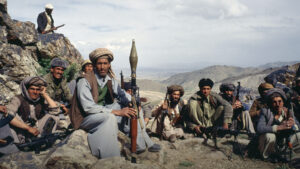
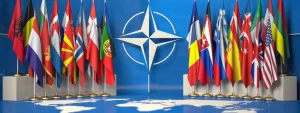



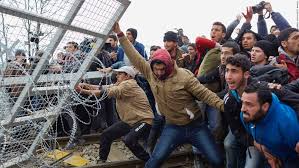

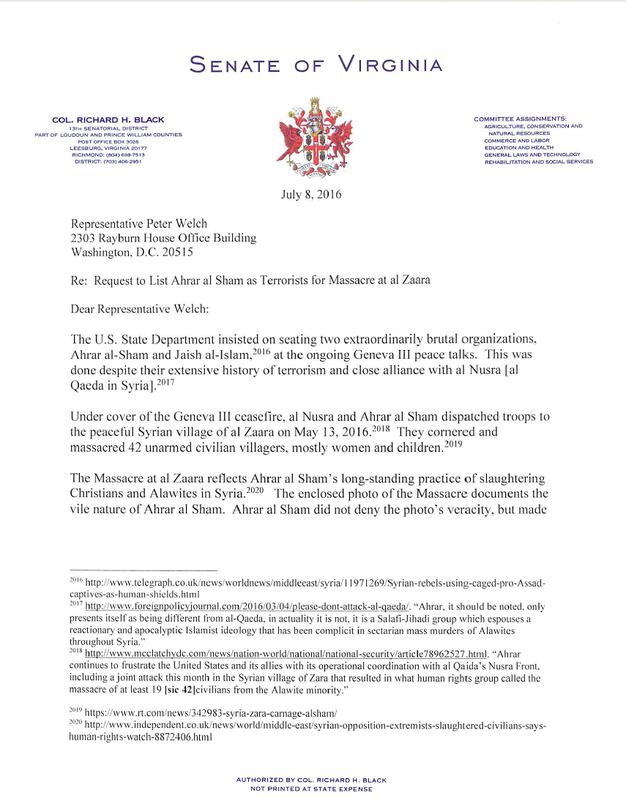
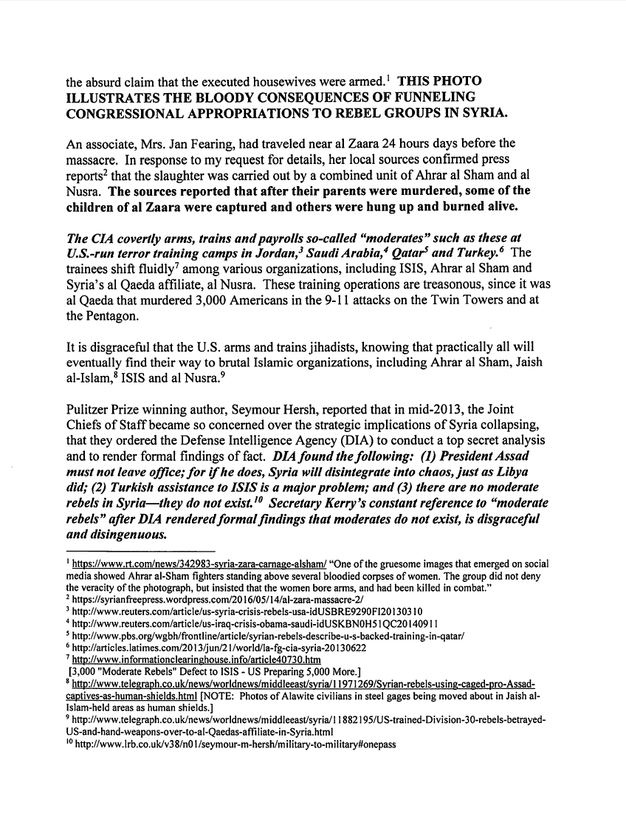
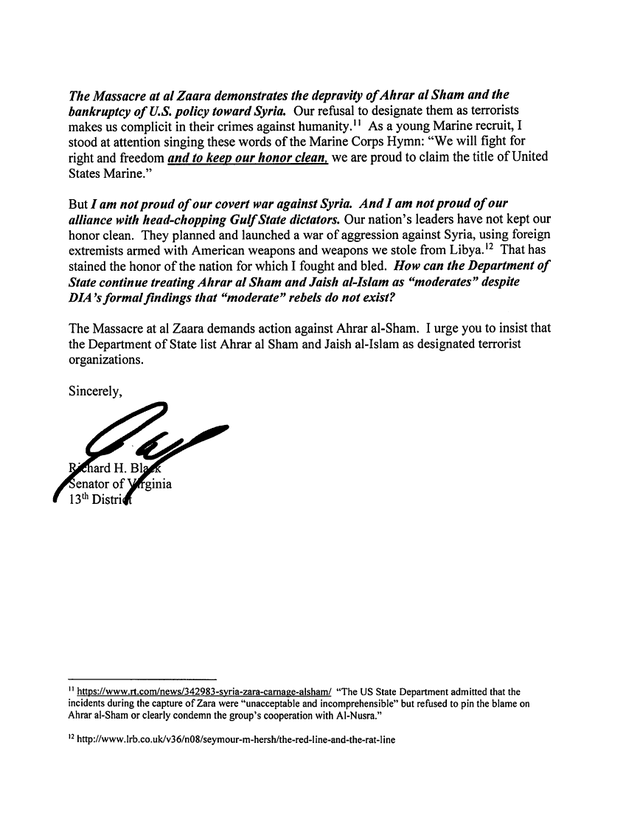
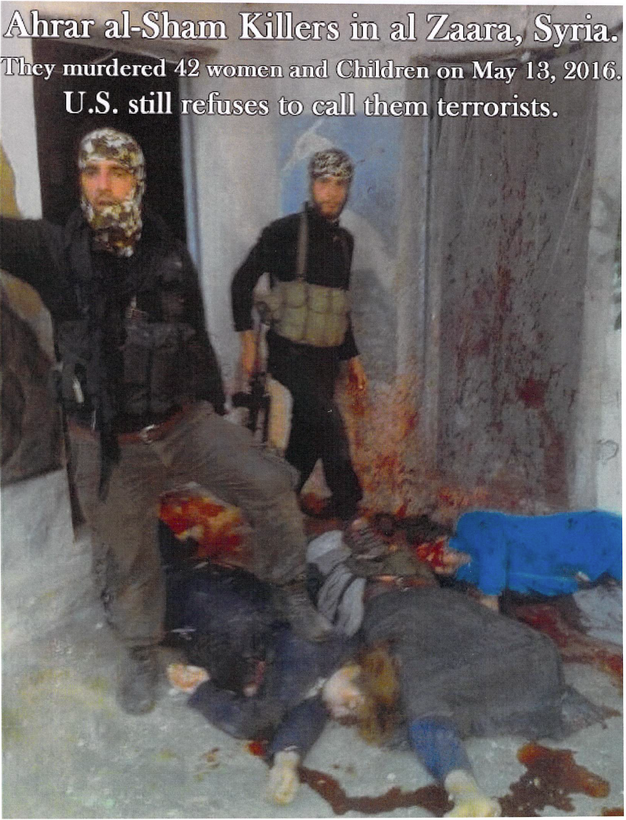

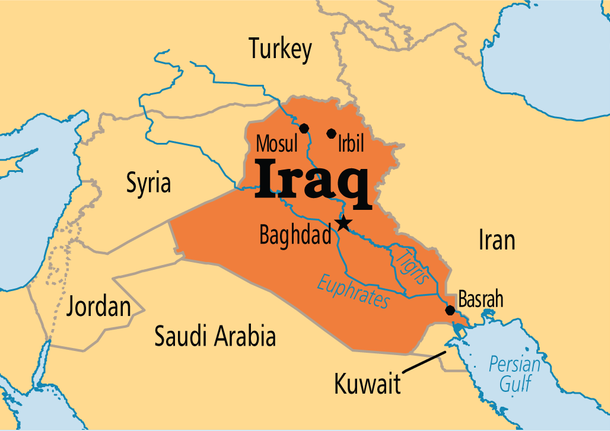 Iraq, in violation of the federal Constitution and the Law of Nations, our contact told us that it was a common practice for mysterious people to turn up at the doors of Iraqi houses and “ask” the inhabitants to leave. Then, typically, a strange family would move in, taking ownership and control of the original owner’s effects. No one knew who these people were, no one knew who had done the asking. In fact, no one wanted to know, it was far too dangerous to ask awkward questions. The police or what was left of the authorities, once the Americans and their Coalition Provisional Government had dissolved the civil power, simply stood by and did nothing to help those forced out of their homes.
Iraq, in violation of the federal Constitution and the Law of Nations, our contact told us that it was a common practice for mysterious people to turn up at the doors of Iraqi houses and “ask” the inhabitants to leave. Then, typically, a strange family would move in, taking ownership and control of the original owner’s effects. No one knew who these people were, no one knew who had done the asking. In fact, no one wanted to know, it was far too dangerous to ask awkward questions. The police or what was left of the authorities, once the Americans and their Coalition Provisional Government had dissolved the civil power, simply stood by and did nothing to help those forced out of their homes.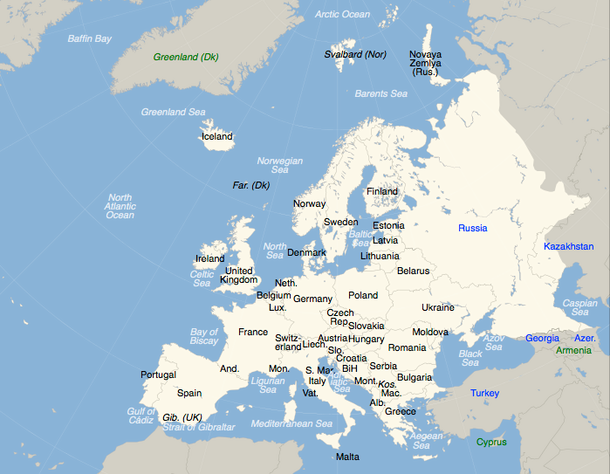
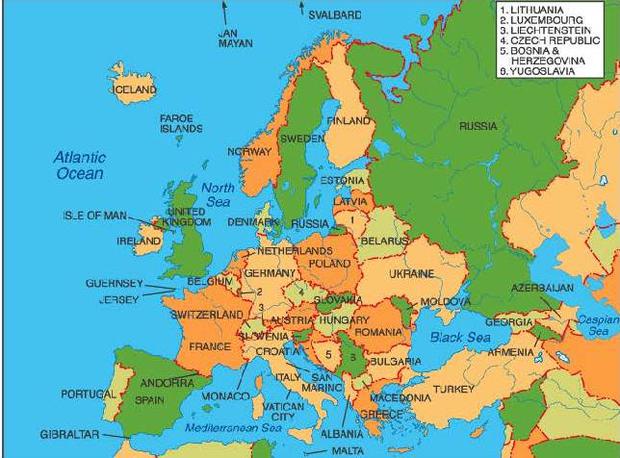 According to CNN, Russian President Vladimir Putin “…point[s] the finger at Europe and the United States for what has now become one of the biggest mass migrations of people in modern times.” Putin further noted “…[in] talking to reporters Friday [September 4, 2015], it’s the West’s wrong-headed foreign policy in the Middle East and Northern Africa that’s at the root of the crisis.”
According to CNN, Russian President Vladimir Putin “…point[s] the finger at Europe and the United States for what has now become one of the biggest mass migrations of people in modern times.” Putin further noted “…[in] talking to reporters Friday [September 4, 2015], it’s the West’s wrong-headed foreign policy in the Middle East and Northern Africa that’s at the root of the crisis.”